Episodes
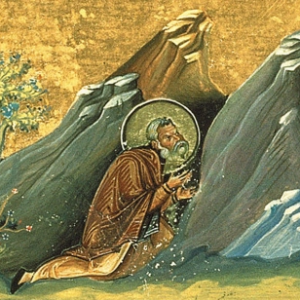
Thursday Mar 19, 2020
Thursday Mar 19, 2020
“And men go abroad to admire the heights of mountains, the mighty waves of the sea, the broad tides of rivers, the compass of the ocean, and the circuits of the stars,” wrote St. Augustine of Hippo in his Confessions, “yet [they] pass over the mystery of themselves without a thought.”
In Confessions, Augustine explores how for years he passed over the mystery of his own self until he began actively exploring that mystery. Why do we behave as we do? What’s the appeal of sin? What’s the appeal of holiness? Why are we so restless? What is truth?
In this fourth lecture in the distance learning course "Into the Lenten Desert: Learning to Pray with the Medieval Masters," Dr. Baxter explores “Augustine’s Restless Heart and the Inward Turn: What Augustine Learned from the Pagans.”
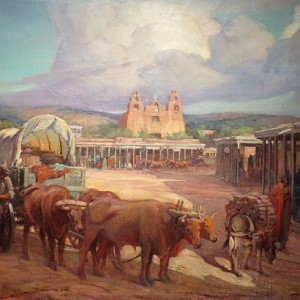
Tuesday Mar 17, 2020
Tuesday Mar 17, 2020
“One afternoon in the autumn of 1851, a solitary horseman, followed by a packmule, was pushing through an arid stretch of country somewhere in central New Mexico. He had lost his way, and was trying to get back to the trail, with only his compass and his sense of direction for guides....Under his buckskin riding-coat [the traveler] wore a black vest and the cravat and collar of a churchman. A young priest...and a priest in a thousand, one knew at a glance. His manners, even when he was alone in the desert, were distinguished. He had a kind of courtesy toward himself, toward his beasts, toward the juniper tree before which he knelt, and the God whom he was addressing.”
Those first lines from Willa Cather’s Death Comes to the Archbishop set the stage for the entire novel. A young priest riding through the middle of the varied landscapes of New Mexico.
Wyoming Catholic College senior Catherine Stypa chose Cather’s novel as the subject of her senior thesis this past the fall and her senior oration earlier this winter. Catherine Stypa is our guest on this edition of The After Dinner Scholar.

Thursday Mar 12, 2020
Thursday Mar 12, 2020
“I have a divine sign…,” said Socrates in his Apology. “This began when I was a child. It is a voice, and whenever it speaks it turns me away from something I am about to do, but it never encourages me to do anything.”
Mysticism is hardly a Christians-only domain. And in fact the Medieval Masters learned a great deal from the Greek pagans, particularly Plato.
In this third lecture in the distance learning course “Into the Lenten Desert: Learning to Pray with the Medieval Masters,” “Pagans Grope Toward God: Piety and Prayer in Classical Antiquity,” Dr. Baxter explores the connections between Greek philosophy and mysticism and the Christian tradition in which we stand today.
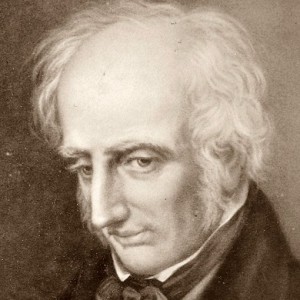
Tuesday Mar 10, 2020
Tuesday Mar 10, 2020
“Quit your books” to enjoy the sunshine is not exactly what we want from our students, but they do study this poem, “The Tables Turned” by William Wordsworth from which that line is taken.
Wordsworth (1770-1850) was one of the first of the English romantic poets and one of the major figures in the Romantic Movement. Romanticism emphasized individualism, emotions, and the glories of nature in contrast to an increasingly technological world.
Dr. Tiffany Schubert has been teaching Wordsworth this semester and is our guest on this week's After Dinner Scholar.

Thursday Mar 05, 2020
Thursday Mar 05, 2020
“The sweetest thing in all my life has been the longing—to reach the Mountain, to find the place where all the beauty comes from…—my country, a place where I ought to have been born.”
Those lines are from C. S. Lewis’ novel Till We Have Faces. The scene is between two sisters Orual and Psyche, the speaker. Set in the ancient world, Psyche has been chosen to be a human sacrifice to the god of the sacred Mountain where she will be tied till the god—or possibly the beasts (Orual’s fear) take her.
Psyche with a mystical frame of mind looks forward to the encounter with the god. Oruel who has imbibed a rationalistic form of Greek philosophy doesn’t understand at all and, in a sense, thinks her sister quite mad.
Mystics have, perhaps always been a bit misunderstood, but never so much as they are in the rationalistic, technological, materialistic era in which we live. Ours is a disenchanted cosmos where the mystic’s cosmos is quite enchanted.
In this session, Dr. Baxter asks, “How Did We Get Here?: Why We Need the Medieval Masters.”

Tuesday Mar 03, 2020
The Oresteia: Vengence, Fury, and Justice with Dr. Pavlos Papadopoulos
Tuesday Mar 03, 2020
Tuesday Mar 03, 2020
Aeschylus play “Agamemnon” along with “The Libation Bearers” and “The Eumenides” form the trilogy called “The Oresteia.”
As the first play opens, Agamemnon has been gone ten years fighting the Trojan War. During that time his wife, Clytaemnestra, has ruled as a tyrant. She has sent off their son, Orestes, and has taken up with Agamemnon’s cousin Aegisthus. She’s also established a string of signal fires from Troy to Argos to inform her as quickly as possible of the fall of Troy which will lead to her husband’s return.
One night, the watchman sees the signal that Troy has fallen and the scene is set for Agamemnon’s homecoming that includes revenge, bloodshed, and finally the kind of justice appropriate to a free people.
Dr. Pavlos Papadopoulos has been teaching “The Oresteia” to our Wyoming Catholic College freshmen and is our guest on The After Dinner Scholar.

Thursday Feb 27, 2020
Into the Lenten Desert: 1) The Soul from Whom God Hides Nothing by Dr. Jason Baxter
Thursday Feb 27, 2020
Thursday Feb 27, 2020
Lent, said Pope Benedict XVI, “is a period of spiritual ‘combat’ which we must experience alongside Jesus, not with pride and presumption, but using the arms of faith: prayer, listening to the word of God and penance.”
Few Christians knew how to wield those weapons of prayer, listening, and penance than the Medieval Masters. These were the priests, bishops, theologians, monks, and hermits who defined the great doctrines of our faith, established many of the traditions we still follow today, and distinguished themselves as spiritual warriors against the world, the flesh, and the devil.
This Lent, Dr. Jason Baxter introduces the great saints of that era and shares what they can teach us about prayer, penance, and spiritual warfare.
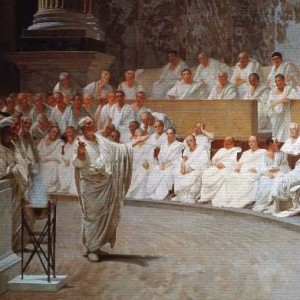
Tuesday Feb 25, 2020
Senior Orations, Rhetoric, and the Pursuit of Truth with Dr. Virginia Arbery
Tuesday Feb 25, 2020
Tuesday Feb 25, 2020
“Wisdom without eloquence is of little advantage,” said the great Roman orator Marcus Tullius Cicero, “but eloquence without wisdom is most mischievous.”
Last week was a big week here at Wyoming Catholic College. Classes were canceled on Tuesday, Wednesday, and Thursday to make room for three days of senior orations.
Each of our seniors writes a thesis during the fall semester and then in late February delivers a half-hour lecture on their thesis topic followed by a half-hour of questions—first from the faculty panel that will be grading the oration and then from the audience.
The school community—students, faculty, and staff—make up the audience that also includes family and alumni who make the trip back to Lander to hear our seniors present their ideas with wonderful rhetorical skill.
“How do they come by that skill?” you ask. Part of our integrated curriculum is the sequence of courses called the Trivium: grammar, logic, and rhetoric. Dr. Virginia Arbery teaches Trivium 202: Political Rhetoric and the Common Good. Dr. Arbery is our guest on this edition of The After Dinner Scholar.

Tuesday Feb 18, 2020
The Season of Lent in East and West with Fr. David Anderson
Tuesday Feb 18, 2020
Tuesday Feb 18, 2020
These days before Lent are typically known as Carnival, that season of masquerade, music, dancing, and reveling as people (presumably) bid Vale carne, "Goodbye, meat."
The Lenten fast has a long history in the Christian Church—not as long as the celebration of Pascha, that is, Easter—but long nonetheless.
Our word “lent” is derived from the Old English word lencten meaning springtime. Nonetheless it has become synonymous with what is still called in many places “The Great Fast.” The goal is to spend forty days preparing to celebrate Easter through prayer, penance, and fasting.
But how do you count those forty days especially when from Ash Wednesday to Holy Saturday is actually 46 days? And what is an appropriate Lenten fast? Vale Carne or "Vale wine and chocolate" or "Vale corn chips"?
Wyoming Catholic College’s Byzantine Catholic chaplain Fr. David Anderson spoke to interested students last week about Lent and is our guest on this episode of The After Dinner Scholar.
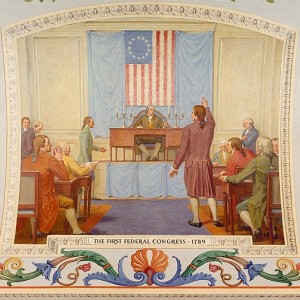
Tuesday Feb 11, 2020
Religious Freedom Today by Dr. Jim Tonkowich
Tuesday Feb 11, 2020
Tuesday Feb 11, 2020
There’s been a great deal of concern about religious freedom over the past ten or so years and for good reason. Religious freedom is central to all human freedom. But the conversation about religious freedom involves two highly controversial words. Those words are “religious” and “freedom.”
In January Dr. Jim Tonkowich had the privilege of speaking about religious freedom to the Wyoming Pastors’ Network as they met on the day before the March for Life in Cheyenne. They are concerned about the future of religious freedom in our country particularly as the culture’s understanding and our laws concerning human sexuality, marriage, and morality continue to veer away from and even be at odds with biblical and Church teachings.
After covering the history of religious freedom, Dr. Tonkowich moved on to those two controversial words: Religion and Freedom.
Recordings of Dr. Tonkowich's three lectures can be found at The Wyoming Pastors' Network website.
"Religious Freedom in America," Wyoming Catholic College's 12-part distance learning course can be found at the college website.

